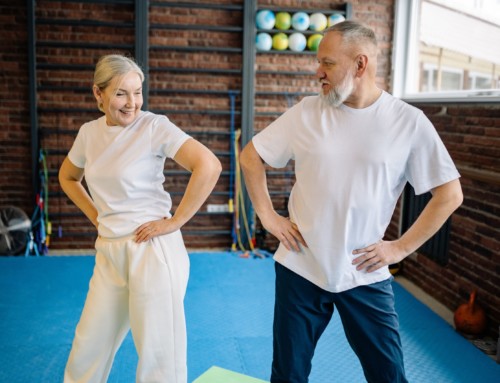 Once you decide it’s time to start exercising you have taken the first and probably most important step you can take toward better health and consequently a better life. If there is a magic pill for losing weight, reversing heart disease, helping manage depression, it’s exercise. Exercise can also reduce the risk of some chronic diseases, improve your balance and coordination, which you’ll need as you age, and it can improve the quality of your sleep.
Once you decide it’s time to start exercising you have taken the first and probably most important step you can take toward better health and consequently a better life. If there is a magic pill for losing weight, reversing heart disease, helping manage depression, it’s exercise. Exercise can also reduce the risk of some chronic diseases, improve your balance and coordination, which you’ll need as you age, and it can improve the quality of your sleep.
Before starting any type of exercise regimen, consult your doctor.
Where to start?
After your doctor has given you the all clear, assess your baseline fitness to see where you need the most help in the beginning. By assessing and recording your scores you can measure your progress over time. Seeing positive results over time can be highly motivating. Consider writing down the following information:
- How long it takes to walk 1 mile (1.6 kilometers)
- What is your pulse rate before and after you walk that mile (1.6 kilometers)?
- While seated on the floor, how far you can reach forward with your legs in front of you? Your shins, ankles, tops of toes.
- What is your waist circumference? Measure around your bare abdomen just above the hipbone and below the navel. No sucking it in!
- Calculate your body mass index here: National Institutes of Health BMI Calculator
- How many pushups you can do at a time?
These calculations should give you a pretty good idea of where you are fitness-wise.
Make time for YOU
It’s easy to say you’ll exercise every day, but actually doing it is another story. To help get this exercise party off the ground, you need to make exercise a top priority. After all, if you don’t have your health, you really don’t have anything. So as you form your plan for moving forward, keep these thoughts in mind:
- What are your fitness goals?
Why the interest in exercise? Did your doctor tell you to get moving? Are you noticing the changes of aging? Do you want to lose weight? When you have clear goals you can keep motivated and gauge your progress over time.
- Look for balance
Each week try for two to two and a half hours of moderate aerobic activity — or one hour if it’s more vigorous. Work in two sessions of strength training per week, too. That can be with weights or using your own bodyweight – pushups, planks, yoga, or resistance bands.
- Multi-task to squeeze in exercise
To make exercise easier, schedule time to do it. Walk or run on a treadmill while watching your favorite show or read a book while you ride a stationary bike. It can be that easy.
- Consider cross training
Different activities keep exercise from getting boring as well as working different muscles. Cross training can reduce the chance of injury from putting extra strain on the same muscles and joints repeatedly. Alternate some of the activities you enjoy and that work different parts of your body – walking/running, strength training, yoga, and swimming.
- Stretching
Be sure to stretch before a workout to get the muscles warmed up a bit, but save the longest time for stretching at the end of your workout. Stretching is important to muscle recovery so don’t skip this part.
Starting an exercise routine is a fantastic decision and can really change your life. It doesn’t have to be overwhelming. Plan up front and pace yourself, and before you know it you will have a healthy habit that lasts your entire life.





